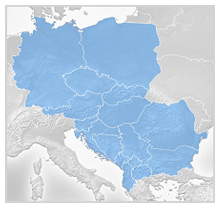The principle of self-governance
Self-governance represents a form of active citizenship, an essential element in democratic political systems. At its core is the idea of assuming responsibility.
Self-governance is based on the principle of subsidiarity, according to which only those tasks which cannot be performed at a local level should be performed by a central authority. The central authority, i.e. the state, should only play a supporting role.
How does it work?
Self-governance means that the state delegates certain legally prescribed tasks and areas of responsibility in which the public has an interest to individuals or organised groups of professionals.
It can be seen as a contract between society and a profession, according to which society grants the profession autonomy in practice of the profession and protection from unqualified competition in return for the assurance of effective self-regulation, professional competence and integrity. The aim of self-governance is therefore to strike a balance between the interests of the profession and its duty to promote the general welfare of the population.
It means taking conscious responsibility for the tasks and interests of the profession, if necessary, also in opposition to the state. This is facilitated by the internalisation of a common attitude and understanding of the role of the profession and what constitutes appropriate behaviour. This is essential in order to ensure the quality of practise. In medicine, this can ultimately be a question of life or death.
Self-governance and the medical profession
In the case of the medical profession, this means assuming responsibility for its own regulation. Organisations of self-governance assume certain tasks. These vary from country to country and may include:
Benefits of physicians’ self-governance
